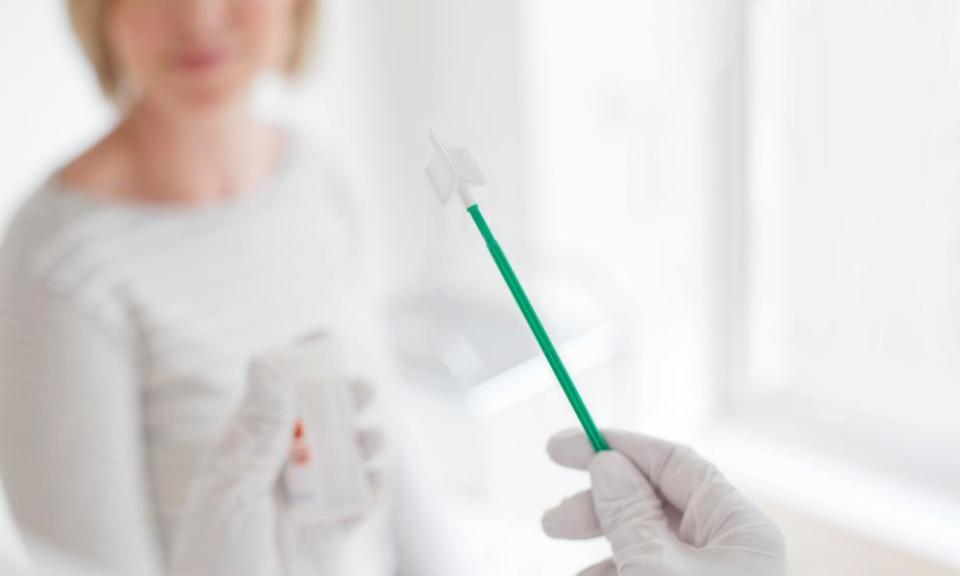Home smear tests to be trialled in London, following lockdown delays

More than 31,000 women in England will be given home smear tests as part of a trial that has been described as a “gamechanger” for cervical cancer screening.
It comes after charities raised concern about smear test delays during the pandemic. While cervical cancer screening has restarted, there is evidence that some women remain reluctant to attend appointments due to the risk of catching Covid-19.
Under a pilot run by NHS England, Public Health England and King’s College London, the home kits will go to women aged 25-64 years who are 15 months overdue for a check and live in the London boroughs of Barnet, Camden, Islington, Newham and Tower Hamlets, where screening appointment attendance is low.
Cervical cancer kills around 850 people every year. Jo’s Cervical Cancer Trust last month called for “faster action” on home tests for HPV, which causes 99% of cervical cancers.
Home tests involve a simple swab being taken from inside the vagina, and are less invasive and uncomfortable than traditional smear tests.
Research has also shown that embarrassment is often a key underlying reason for women not attending smear tests, as well as cultural barriers and fear about what it involves.
Related: Cervical cancer: minority ethnic women more likely to miss screenings in pandemic
Dr Anita Lim, from King’s College London, who is leading the study, said that it it had the potential to be “a gamechanger”.
“We know many women aren’t coming forward for screening and almost half of women in some parts of London aren’t up to date with their cervical screening,” she said.
“It’s an intimate procedure and a variety of barriers can stop people from attending, even though it can be a life-saving test. This simple and convenient swab means it can be done in the privacy and comfort of your own home.”
Lim said women who don’t come for regular screening are at the highest risk of developing cervical cancer, so it is crucial that screening is made easier to protect women.
Denmark and Australia already offer self-testing but this is the first time home smear tests have been trialled in England. In total, 19,000 women will be posted a kit and 12,000 will be given one by their GP.
Ruth Stubbs, National Cervical Screening Programme manager at PHE, said the study was a first step in getting closer to allowing all women to do these tests from home. “London has the lowest cervical screening coverage in the country and is ideal for testing this study,” she said.
Related: Do not fear the smear: how to overcome anxiety about cervical screening
After being conducted at home, the tests are sent off to be examined. Results will be sent back in the post and to patients’ GP surgeries.
If the home test detects HPV, women will be invited to attend their GP practice for a standard smear test as a follow-up.
Professor Peter Johnson, NHS national clinical director for cancer, said: “We would urge every woman to make sure they have their smear test – the earlier HPV is detected the better. It could save your life.”
The trial will run until December. Kate Sanger, head of policy and communications at Jo’s Cervical Cancer Trust, said: “Self-sampling removes so many of the challenges to cervical screening and through our research we know it is very much wanted by women. It has been fantastic to be part of this study and we hope it leads to change that will save lives and the trauma a cervical cancer diagnosis can bring.”

 Yahoo Finance
Yahoo Finance 